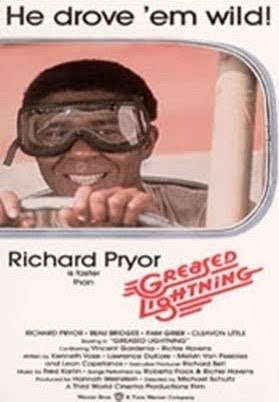Richie Havens, the veteran folk singer whose frenetic guitar strumming and impassioned vocals made him one of the defining voices and faces of Woodstock and 1960s pop music, died Monday of a heart attack at his home in Jersey City, N.J. He was 72.
His death was confirmed by his booking agent, Tim Drake.
The Brooklyn native with the powerful ripsaw voice galvanized rock fans as the opening act at Woodstock, the festival billed as "Three Days of Peace and Music" in upstate New York in August 1969.
His performance of "Freedom/Motherless Child," adapted from a black spiritual he learned as a child, became a landmark anthem of the event, which included performances by Jimi Hendrix, The Who, and Crosby, Stills, Nash and Young.
"Richie Havens was one of the nicest, most generous and pure individuals I have ever met," Stephen Stills said in a statement Monday. "He always caught fire every time he played."
Originally scheduled as the fifth act on the initial day of the festival, Havens and two members of his band were pressed into service when massive traffic jams on the roads leading to Max Yasgur's farm outside Woodstock delayed the musicians slated to go on first.
Havens' "powerful but calm demeanor was just what we needed to set the tone for liftoff," Michael Lang, a co-creator of the Woodstock festival, wrote in his 2009 book "The Road to Woodstock."
Shortly after 5 p.m. on the opening day, Havens, guitarist Paul Williams and drummer Daniel Ben Zebulon went before the restless crowd of 500,000 people, many of whom had camped on the site for a week. Opening with a signature song, "Handsome Johnny," Havens gave a marathon performance with several encores to buy time for fellow performers still struggling to reach the venue.
After three hours, he painstakingly tuned his guitar while trying to figure out what he had left to play.
"I had sung all the songs I knew," he recalled in 1993 in the Chicago Tribune, "but then I started thinking about the concept of freedom. I thought that we had made a mistake in thinking that freedom was something we needed to obtain instead of realizing that we already had it. That was my inspiration, and I started singing the word 'freedom' and went on from there."
His performance of "Freedom/Motherless Child" embodied the sense of frustration at the strictures of the social status quo and looming liberation being felt by both blacks and whites, and men and women during an era of tremendous sociopolitical turmoil.
Richard Pierce Havens was born on Jan. 21, 1941, in the Bedford-Stuyvesant neighborhood of Brooklyn, where his father made Formica tables and played piano with a jazz flair. His grandmother exposed him to Jewish folk songs, Irish ballads and Caribbean island music.
He graduated from street-corner doo-wop groups to performing with the McCrea Gospel Singers as a teenager. Fired from his job as a portrait artist in Manhattan's Greenwich Village after missing work one day, he began performing music. His first album, "Mixed Bag," was released in 1967.
He formed his own record label, Stormy Forest, which released six of his albums. They included "Alarm Clock," which featured Havens' biggest hit single, his cover of George Harrison's "Here Comes the Sun." He was also known for his interpretations of material by Bob Dylan and Van Morrison.
Throughout the 1980s and '90s, Havens recorded television commercial jingles for companies including Amtrak and McDonald's.
Long active in causes related to the environment, Havens performed at the Environmental Inaugural Ball, one of the festivities associated with the 1993 inauguration of President Clinton.
He played a sold-out concert in 2009 at the Bethel Woods Center for the Arts, on the site of Woodstock, to help mark its 40th anniversary.
He is survived by three daughters, five grandchildren and two great-grandchildren.













